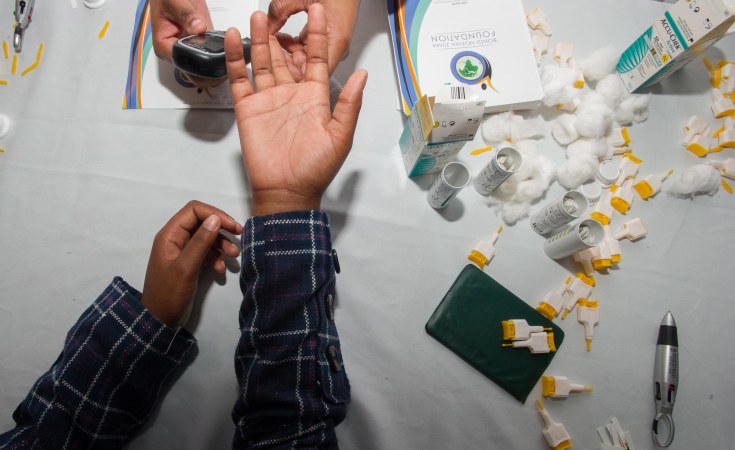Diabetes is a chronic condition that affects how the body turns food into energy.
In South Africa there has been a notable rise in the prevalence of type 2 diabetes in recent years, due to changing diets. People are consuming more processed foods, sugary drinks and high-calorie meals.
Other factors are the lack of physical activity and high levels of obesity.
Type 2 diabetes is the most common form, making up 90% of cases. With this type, the body produces insulin but can't use it effectively. It typically affects overweight adults with a family history of the condition.
Approximately one in nine South African adults have diabetes, totalling around 4.2 million individuals.
Diabetes is also the leading cause of death among women in the country.
As public health specialists and clinicians focusing on diabetes, we researched the standard of primary care that people living with type 2 diabetes receive in South Africa.
We found that the management of diabetes falls short of optimal standards, putting individuals at risk of the many side effects associated with diabetes.
What we found and why it matters
We examined 479 medical records of individuals diagnosed with type 2 diabetes across 23 primary healthcare facilities in the Tshwane district of Gauteng province.
The majority of patients were women. Patients had been living with diabetes for an average of 5.5 years. The average age was 58 years.
When it comes to managing diabetes, there are targets for blood glucose, blood pressure and cholesterol. We used guidelines set out by the Society for Endocrinology, Metabolism and Diabetes South Africa for this study.
Our audit found a significant number of patients with type 2 diabetes were not receiving adequate treatment.
Read more: Over 12% of South African adults have diabetes - education is critical to achieve good outcomes
Only 23% of patients met the glucose target. This meant more than 70% of the patients were at risk of serious health complications.
Patients attended clinic visits regularly, yet they experienced prolonged periods of hyperglycaemia (high blood sugar levels).
We also found that healthcare providers often displayed clinical inertia. In other words, they failed to set targets or to initiate or adjust treatment to achieve these goals. They delayed starting or changing a patient's treatment plan, even when it was clear the current plan wasn't working well.
Factors contributing to clinical inertia included a uniform treatment approach not suited to all patients, limited treatment options and an inadequately equipped healthcare system.
Given the absence of comprehensive surveillance systems like diabetes registries, studies serve as the primary source of information regarding the implementation and quality of diabetes care in South Africa.
Our results aligned with various studies conducted across South Africa, including one about a decade ago within the same district.
A more recent study of 116,726 patients in Cape Town found three-quarters of participants had poor glycaemic control as blood sugar levels were not being managed well.
These consistent findings highlight the extra effort needed to overcome clinical inertia to improve diabetes care in South Africa.
High cost of poor treatment
For poorly managed patients, diabetes can lead to severe health complications, such as nerve damage, kidney issues, heart disease, stroke, vision impairment and mental health disorders.
For society as a whole, suboptimal diabetes care places a strain on the healthcare system and contributes to higher healthcare costs.
Another consequence is loss of productivity due to absenteeism from work and even disability, which has an economic impact on the country.
Ways forward
Monitoring the quality of diabetes care and evaluating the effectiveness of therapies and treatment in clinical practice is a challenge in South Africa.
Read more: Diabetes is a ticking time bomb in sub-Saharan Africa
New strategies could include:
- adopting individualised patient-centred management with access to a wider choice of glucose-lowering drugs
- addressing clinical inertia and the failure to intensify therapy when indicated
- building a health system that caters for the needs of South Africans with diabetes.
Inadequate treatment for the country's many people living with diabetes has devastating consequences, not just for individuals and their families, but for the country's health system at large.
Patrick Ngassa Piotie, Project Manager, University of Pretoria Diabetes Research Centre, University of Pretoria


